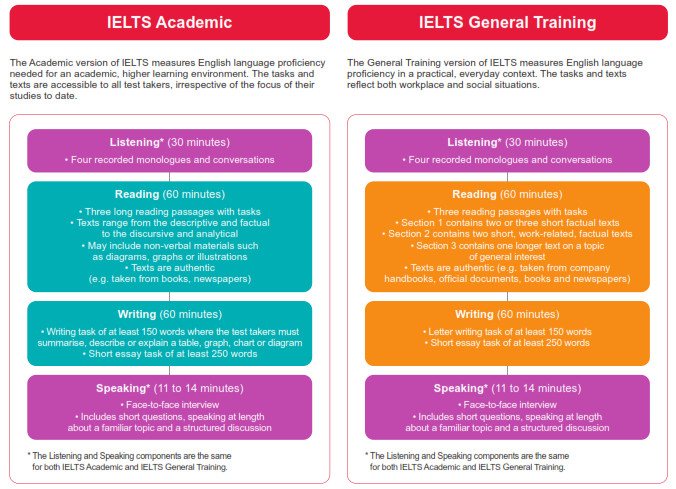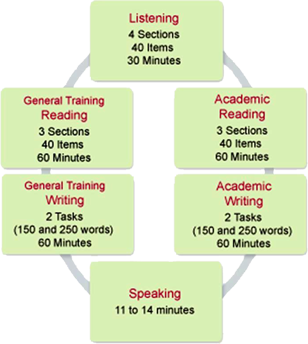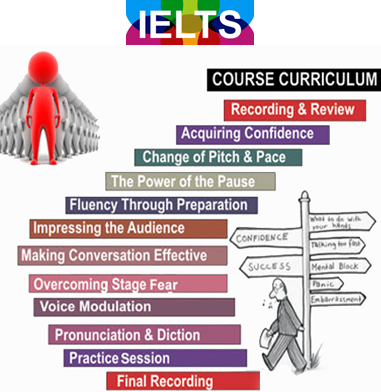
Provide your search criteria here and get result.

“The International English Language Testing System” is an international standardized test of English language proficiency for non-native English language speakers. it was established in 1989. IELTS is one of the two major English-language tests in the world, the other being the TOEFL. Jobance Careers is Best IELTS Training Institutes in Vijayawada.
There are two versions of the IELTS: The Academic Version and the General Training Version:

The Academic Version is intended for those who want to enrol in universities and other institutions of higher education and for professionals such as medical doctors and nurses who want to study or practice in an English-speaking country.
The General Training Version is intended for those planning to undertake non-academic training or to gain work, or for immigration purposes.
IELTS is accepted by most Australian, British, Canadian, Irish, New Zealand and South African academic institutions, over 3,000 academic institutions in the United States, and various professional organizations across the world. It is also a requirement for immigration to Australia, New Zealand and for Canada.


In each section you will hear a recording. The four sections become progressively more difficult and each recording is played once only. There are pauses to divide the recording into smaller parts. For each part you need to answer a series of questions of one type. References to examples of each question types are given in the table.
| Section | Number of items | Test type | Task types |
|---|---|---|---|
| 1 | 10 | Social or transactional conversation(2 Speakers) | Completing notes, tables, sentences, diagrams, and flow charts/summary. |
| 2 | 10 | Talk or speech on social needs (1 speaker) | Short answer questions. |
| 3 | 10 | Conversation in educational context(2-4 speakers) | Various kinds of multiple choice questions. |
| 4 | 10 | Talk or lecture on topic of general interest(1 speaker) | Labelling parts of diagram, matching lists, sentence completion. |
The three passages contain 2000-2750 words in total and become progressively more difficult, but they are always suitable for non-specialist readers. If any technical terms are used, they will be explained in a glossary. References to examples of each question type are given in the table.
| Passage | Number of items | Test type | Task types |
|---|---|---|---|
| 1 | 11-15 | Topics of general interest. | Various kinds of multiple choice questions. |
| 2 | 11-15 | Non-specialist articles or extracts from books, journals, magazines and news-papers. | Short answer questions. |
| 3 | 11-15 | One, atleast, has detailed logical argument. | Sentence completion. |
| Classification. | |||
| Matching headings with paragraphs or sections of text. | |||
| Completing notes, sentence, tables, summary, diagram or flowchart. | |||
| Matching lists/phrases. | |||
| Locating information with paragraphs. | |||
| True/False/Not-Given. | |||
| Yes/No/Not-Given. |
There is no choice of task, either in part 1 or 2, so you must be prepared to write about any topic. However, the topics in the exam are of general interest and you do not need to be an expert to write about them. References of examples of each task type are given in the table
| Task | Time | Format | Task types |
|---|---|---|---|
| 1 | 20 Minutes | 150 word report, describing or explaining a table or diagram. | Presenting information based on : Data, e.g. bar charts, line graph, table A process/procedure in various stages An object, event or series of events |
| 2 | 40 Minutes | 250 word easy, responding to written opinion/problem | Presenting and/or discussing:
|
You will be interviewed, on your own, by one examiner, and the conversations will be recorded on audio cassette. The three part structure of the interview is always the same, although the topics will vary from candidate to candidate. References to examples of each main part are given in the table.
| Task | Time | Format | Task types |
|---|---|---|---|
| 1 | 4-5 Minutes | Familiar discussion | Introduction, ID checking. You answer questions about familiar topics: Yourself, your home/family, job/studies, interests |
| 2 | 3-4 Minutes | Extended speaking | You are given a topic verbally and on a card. You have a minute to prepare a talk. You speak for 1 or 2 minutes on the topic, E.g. a person, place, object or event. You answer one or two follow-up questions |
| 3 | 4-5 Minutes | Topic discussion | You answer verbal questions, discussing more abstract ideas linked to the topic. |